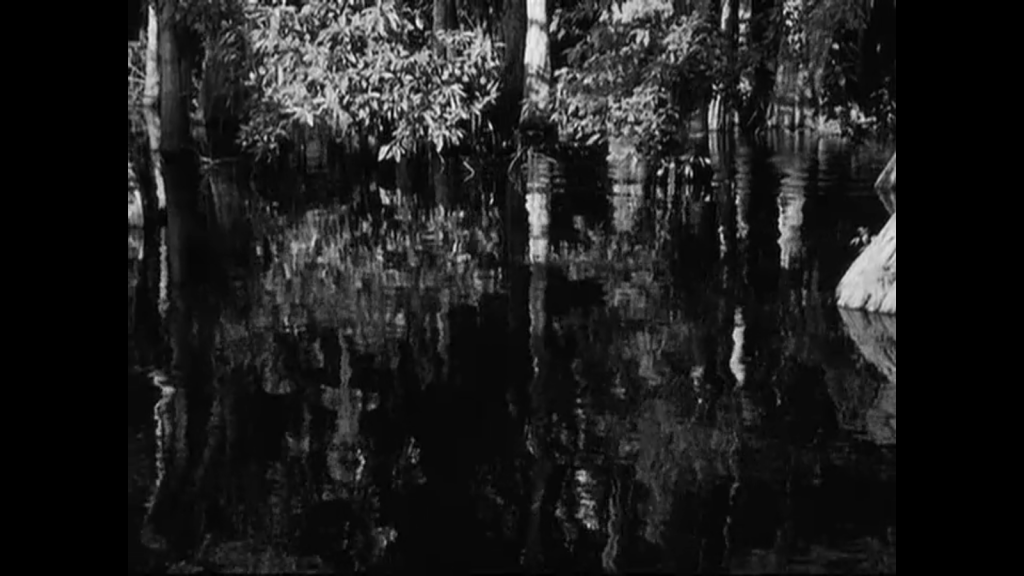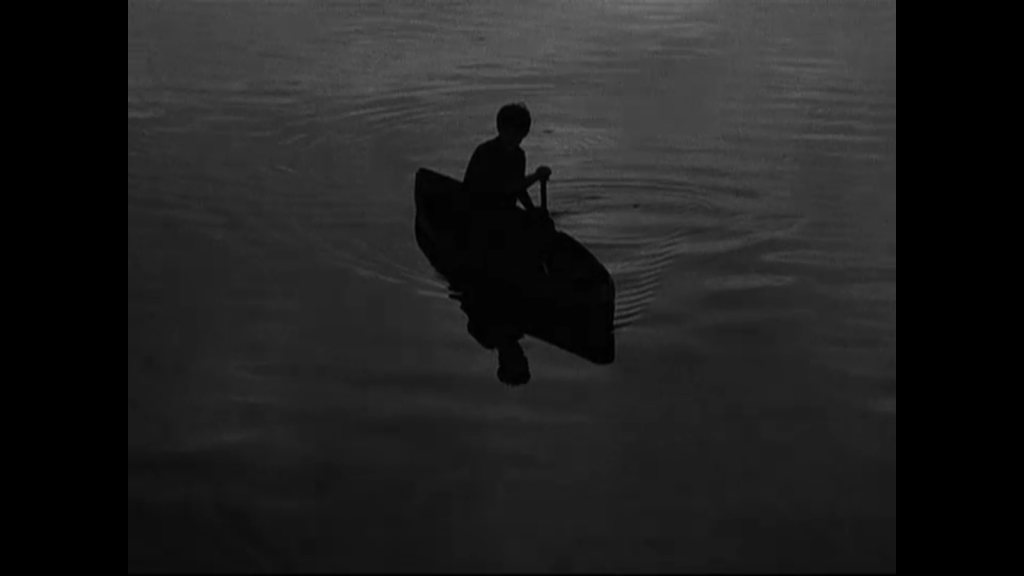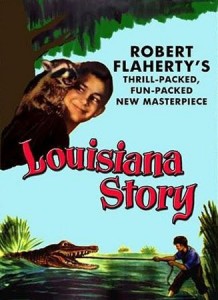|
Genres, Themes, Actors, and Directors:
- Deep South
- Documentary
- Robert Flaherty Films
Response to Peary’s Review:
Although it’s lauded by numerous critics as documentarian Robert Flaherty’s finest achievement, Louisiana Story (his final film) “looks nice” but possesses a fatally underdeveloped script (which, ironically, was nominated for an Oscar). As Peary notes, the fact that “the film was financed by Standard Oil Company” may account “for Flaherty’s oddly romantic notion that the presence of the oil company will have no adverse effect on the environment” (a particularly egregious stance given the tragedy of recent oil spills in the region). Meanwhile, as Peary points out, “Flaherty spends a lot of time filming the derrick in action, but the workers look so bored that the scenes are dull”; indeed, none of the workers are particularly distinctive or memorable, and Boudreaux himself (a non-actor whose inexperience shows) lacks the requisite charisma to remain sufficiently engaging as the protagonist of the film. His interactions with his pet raccoon and his tussle with an alligator are decidedly tame, and smack uncomfortably of a Disney-fied view of nature.
As is now well-known, Flaherty’s “documentaries” were actually highly constructed narratives featuring carefully selected actors, thus rendering his fame as a forerunner of ethnographic filmmaking suspect at best. As I discussed in my review of Flahery’s breakthrough film, Nanook of the North (1922), such an issue remains much less problematic when the material itself is intrinsically fascinating: in Nanook…, for instance, one can easily understand why he may have “needed” to reconstruct key scenes, given the severe constraints of life in such harsh circumstances. In Louisiana Story, however, such a “sin” is less pardonable — particularly given that we actually learn very little about life for this Cajun backwoods family. As DVD Savant notes in his review of the film, “Pa is never seen doing anything more vocational than handling a small trap, and the son has nothing to do but amuse himself exploring the dangerous bayou”. Louisiana Story is a visually gorgeous but otherwise disappointing finale to Flaherty’s career.
Redeeming Qualities and Moments:
- Fine b&w cinematography by Richard Leacock


- Virgil Thomson’s score
Must See?
No, though it will naturally be of interest to those curious about the trajectory of Flaherty’s oeuvre. Selected for the National Film Registry at the Library of Congress in 1994. Available for free viewing at www.archive.org.
(Listed in 1001 Movies You Must See Before You Die)
Links:
|



One thought on “Louisiana Story (1946)”
Not a must.
Rather in agreement with the assessment, which pretty much tells it like it is (particularly the comparison between this film and ‘Nanook’). I will admit that the photography is occasionally quite effective but the film fights that at every turn and is basically a snooze-bag.